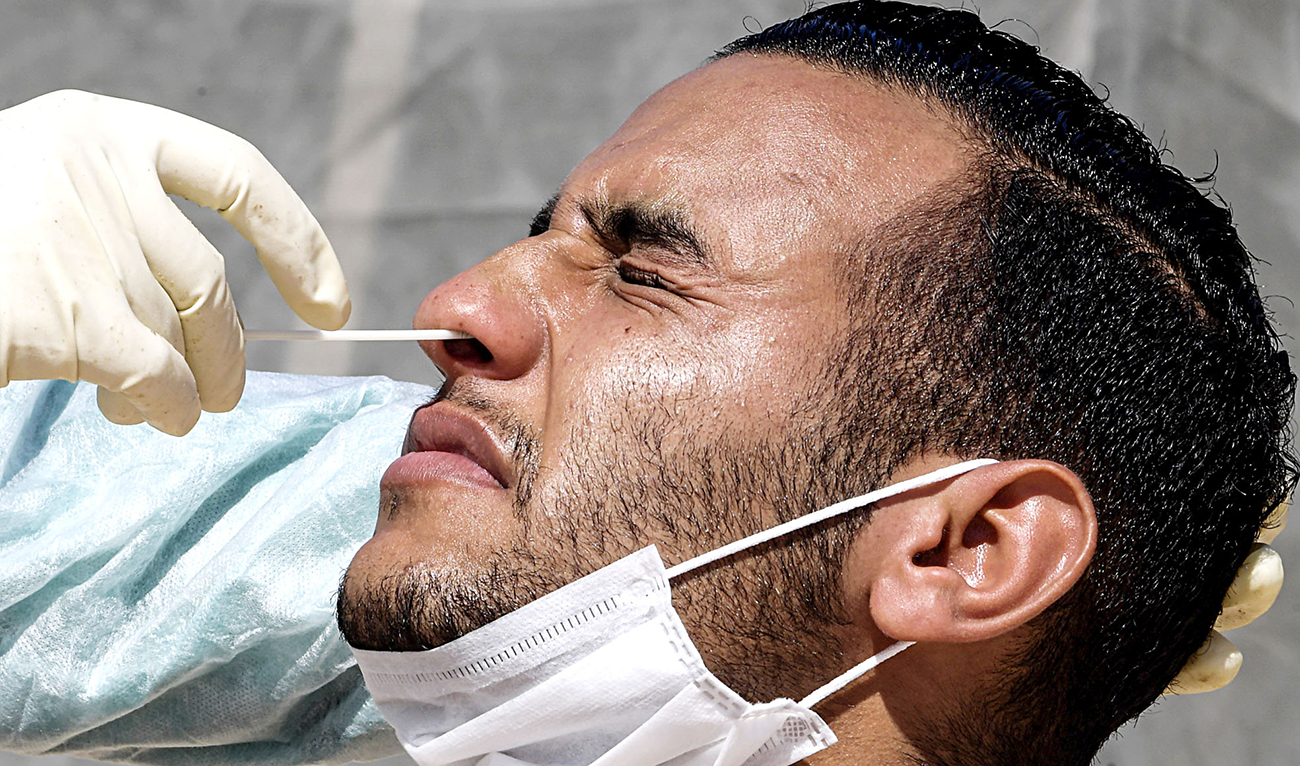EL-HAMMA: The coronavirus pandemic has put the spotlight on struggling health services in southeast Tunisia, with residents and doctors in a COVID-19 hotspot deploring a lack of equipment and medics.
The North African country had managed to contain its outbreak by moving early and imposing strict measures in March, but cases have been on the rise since it reopened its borders on June 27.
Gabes province, and especially the town of El Hamma, some 500 km south of the capital Tunis, has become one of the country’s virus epicenters.
More than 800 of Tunisia’s almost 4,000 coronavirus cases and 11 of its 80 deaths have been recorded in Gabes region — mostly from El Hamma — in August alone, according to the Health Ministry.
Most cases have been asymptomatic, but residents of the agricultural town of some 100,000 people fear they will be unable to access treatment if needed.
“Our hospitals need to be hospitalized, urgently!” Fethi, a resident in his thirties of El Hamma, where a lockdown has been reimposed, said.
The local hospital has no intensive care beds, and the army set up a field hospital in mid-August to screen suspected cases.
Those in need of hospitalization are usually sent to regional capital Gabes, around 30 kilometers away and home to more than 400,000 people. But the situation there is only marginally better.
The main regional hospital in Gabes has just two respirators for COVID-19 patients, and two intensive care doctors for the whole hospital — but the pair only treat non-coronavirus cases.
“We have no intensive care staff for COVID patients,” said Hamida Kwas, head of respiratory medicine at Gabes regional hospital.
It has just 16 intensive care beds, and all eight beds in the regular coronavirus ward are occupied.
Hospital director Hechmi Lakhrach said he fears a “catastrophe.”
Health Ministry officials are aware of the lack of resources, equipment and staff, but “nothing has been done,” he said.
Public health has declined in Tunisia over the past two decades, faced with poor management and corruption, and eroded by an increase in private facilities. Many trained doctors go abroad to work.
Services are also unequally distributed: 13 of Tunisia’s 24 provinces have less than one intensive care bed per 100,000 inhabitants, according to a study on the marginalization of Tunisia’s central and southern regions.
Kwas said staff and equipment shortages were “exhausting us morally and physically. We are really afraid of not being able to go on.”
Donations from individuals and companies have improved some of Tunisia’s facilities, particularly since the start of the novel coronavirus outbreak.
But even hospitals that have benefited are still sometimes inadequately equipped. At the Gabes hospital, donations allowed the creation of screening rooms for suspected coronavirus cases.
But these are not in use due to lack of equipment, said Imen Rejeb, head of the emergency department.
She said suspected coronavirus cases were being hospitalized in the Covid-19 ward alongside confirmed cases, risking contamination.
“We have no oxygen supply … no respirators, no nurses. We have nothing,” Rejeb said.




